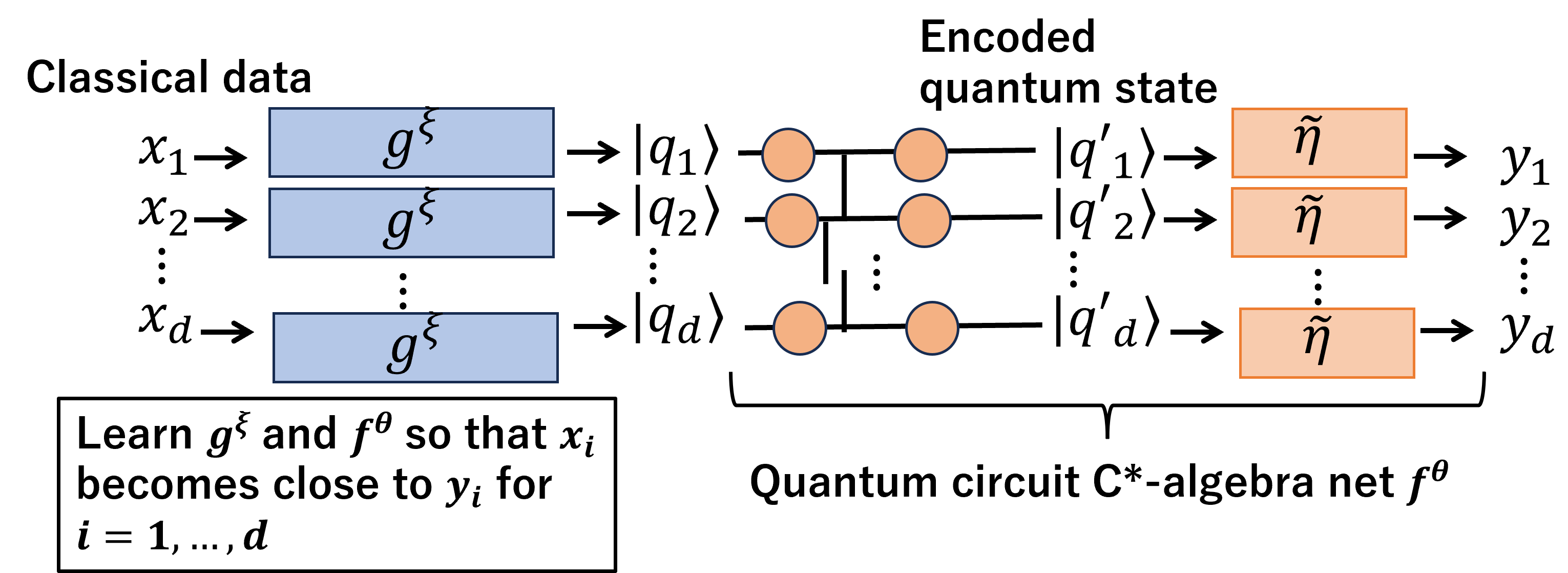$C^*$-Algebraic Machine Learning: Moving in a New Direction

0
🎲
Sign in to get full access
Overview
- Machine learning has a long history of collaboration with fields like statistics, probability, and linear algebra.
- The researchers propose a new direction for machine learning: $C^
$-algebraic ML, which combines $C^ $-algebra and machine learning. - $C^*$-algebra is a generalization of the space of complex numbers, which can unify existing learning strategies and create new, more diverse data models.
Plain English Explanation
Machine learning is closely tied to several areas of mathematics, such as statistics, probability, and linear algebra. In this paper, the researchers suggest a new approach called "$C^
$C^
The paper explains the reasons why $C^
Technical Explanation
The paper proposes a new research direction called "$C^
The researchers explain how $C^
The paper discusses open questions and challenges in $C^*$-algebraic ML, including how to effectively learn from and reason about $C^*$-algebraic data. The researchers also share their thoughts on the future development and potential applications of this new research direction.
Critical Analysis
The paper presents a promising new direction for machine learning research by proposing the integration of $C^*$-algebra, a powerful mathematical framework, with various machine learning techniques. The researchers make a compelling case for the potential benefits of this approach, including the ability to unify existing learning strategies and create more expressive data models.
However, the paper does not provide extensive details on the specific challenges or limitations of implementing $C^
Additionally, the paper could have delved deeper into the potential real-world applications of $C^*$-algebraic ML, beyond the theoretical considerations. Exploring use cases and potential impact on various domains would strengthen the overall narrative and help readers understand the broader implications of this research.
Conclusion
This paper presents a novel and promising research direction called "$C^
While the paper provides a solid conceptual foundation and technical considerations for $C^
This summary was produced with help from an AI and may contain inaccuracies - check out the links to read the original source documents!
Related Papers
🎲

0
$C^*$-Algebraic Machine Learning: Moving in a New Direction
Yuka Hashimoto, Masahiro Ikeda, Hachem Kadri
Machine learning has a long collaborative tradition with several fields of mathematics, such as statistics, probability and linear algebra. We propose a new direction for machine learning research: $C^*$-algebraic ML $-$ a cross-fertilization between $C^*$-algebra and machine learning. The mathematical concept of $C^*$-algebra is a natural generalization of the space of complex numbers. It enables us to unify existing learning strategies, and construct a new framework for more diverse and information-rich data models. We explain why and how to use $C^*$-algebras in machine learning, and provide technical considerations that go into the design of $C^*$-algebraic learning models in the contexts of kernel methods and neural networks. Furthermore, we discuss open questions and challenges in $C^*$-algebraic ML and give our thoughts for future development and applications.
Read more6/10/2024
🔗

0
Review and Prospect of Algebraic Research in Equivalent Framework between Statistical Mechanics and Machine Learning Theory
Sumio Watanabe
Mathematical equivalence between statistical mechanics and machine learning theory has been known since the 20th century, and researches based on such equivalence have provided novel methodology in both theoretical physics and statistical learning theory. For example, algebraic approach in statistical mechanics such as operator algebra enables us to analyze phase transition phenomena mathematically. In this paper, for theoretical physicists who are interested in artificial intelligence, we review and prospect algebraic researches in machine learning theory. If a learning machine has hierarchical structure or latent variables, then the random Hamiltonian cannot be expressed by any quadratic perturbation because it has singularities. To study an equilibrium state defined by such a singular random Hamiltonian, algebraic approach is necessary to derive asymptotic form of the free energy and the generalization error. We also introduce the most recent advance, in fact, theoretical foundation for alignment of artificial intelligence is now being constructed based on algebraic learning theory. This paper is devoted to the memory of Professor Huzihiro Araki who is a pioneer founder of algebraic research in both statistical mechanics and quantum field theory.
Read more6/19/2024


0
Quantum Circuit $C^*$-algebra Net
Yuka Hashimoto, Ryuichiro Hataya
This paper introduces quantum circuit $C^*$-algebra net, which provides a connection between $C^*$-algebra nets proposed in classical machine learning and quantum circuits. Using $C^*$-algebra, a generalization of the space of complex numbers, we can represent quantum gates as weight parameters of a neural network. By introducing additional parameters, we can induce interaction among multiple circuits constructed by quantum gates. This interaction enables the circuits to share information among them, which contributes to improved generalization performance in machine learning tasks. As an application, we propose to use the quantum circuit $C^*$-algebra net to encode classical data into quantum states, which enables us to integrate classical data into quantum algorithms. Numerical results demonstrate that the interaction among circuits improves performance significantly in image classification, and encoded data by the quantum circuit $C^*$-algebra net are useful for downstream quantum machine learning tasks.
Read more4/10/2024
🧠

0
Noncommutative $C^*$-algebra Net: Learning Neural Networks with Powerful Product Structure in $C^*$-algebra
Ryuichiro Hataya, Yuka Hashimoto
We propose a new generalization of neural network parameter spaces with noncommutative $C^*$-algebra, which possesses a rich noncommutative structure of products. We show that this noncommutative structure induces powerful effects in learning neural networks. Our framework has a wide range of applications, such as learning multiple related neural networks simultaneously with interactions and learning equivariant features with respect to group actions. Numerical experiments illustrate the validity of our framework and its potential power.
Read more7/9/2024